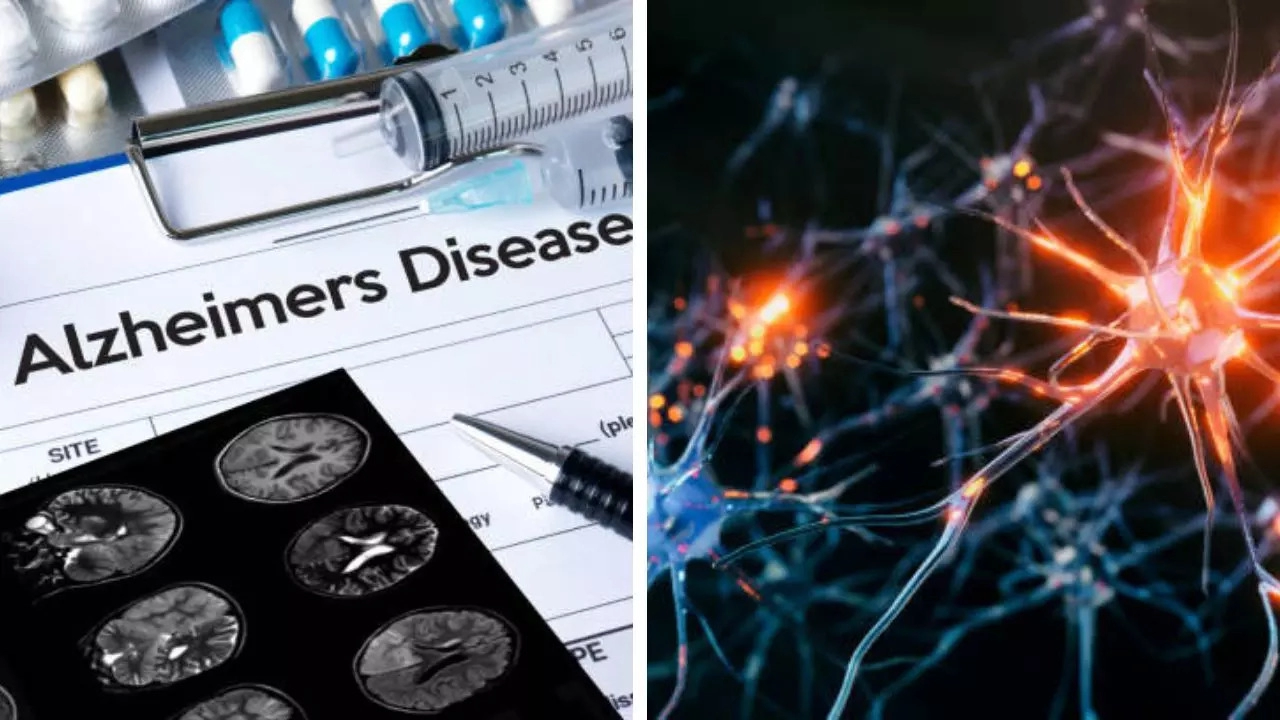Ashima Sharda Mahindra • 04 Oct 2024
Breakthrough Alzheimer’s Drug Prevents Toxic Protein Build-up In Brain

The drug RI-AG03 targets tau, the protein that accumulates in the cells forming insoluble fibrillary deposits
In a new, exciting breakthrough - a new drug has been developed to prevent the build-up of toxic proteins in the brain that lead to neurodegenerative issues causing Alzheimer’s disease. According to the Alzheimer’s Society UK, which funded the study, the therapy targets tau - the protein that accumulates in the cells forming insoluble fibrillary deposits.
An international study led by Lancaster University says it has developed a drug called RI-AG03 that targets and blocks the two “hotspots” where tau clumping tends to occur.
“This research is taking promising steps towards a new one-of-a-kind therapy which targets tau, a damaging protein in the brains of people living with Alzheimer’s, preventing it from clumping together,” said Richard Oakley, associate director of research and innovation.
According to the study – findings of which were published in Alzheimer’s and Dementia: The Journal of Alzheimer’s Association, tau stabilizes nerve cells in the brain. These proteins can go bad by clumping together to form long, twisting fibrils that disrupt cell function. Abnormal clumps of Tau are a hallmark of Alzheimer’s - which affects more than 55 million people across the world.
“There are two regions of the tau protein that act like a zipper to enable it to aggregate,” explained Dr. Amritpal Mudher, professor of neuroscience at the University of Southampton. “For the first time, we have a drug which is effective in inhibiting both these regions.”
How was the study conducted?
According to Dr. Mudher, the drug was administered to fruit flies that had toxic Tau protein, noting that it suppressed neurodegeneration and extended the flies’ lives by about two weeks.
The average lifespan of a fruit fly is 40-50 days.
Researchers at the University of Texas Southwestern Medical Center also tested the drug in genetically engineered cells, finding that it reduced tau aggregation.
More tests to be done on rodents
According to experts, more tests would be done using RI-AG03 in rodents before launching clinical trials. It is important to note that earlier tau-based therapies have failed in clinical trials.
While there is no cure for Alzheimer’s, many medications aim to slow the cognitive decline in those affected.
What is Alzheimer’s?
Alzheimer's disease is a progressive brain disorder that causes a gradual decline in memory and thinking skills. Experts say the disorder gets worse over time and causes your brain to shrink and brain cells to eventually die.
Early signs and symptoms include difficulty remembering recent events and may progress to include confusion, disorientation, and difficulty planning. Other symptoms include:
- Problems with language and speech
- Personality changes like becoming aggressive
- Hallucinations and delusions
- Mood swings and heightened
- Weight loss because of no eating
- Difficulty swallowing
Get Latest News Live on Times Now along with Breaking News and Top Headlines from Health and around the world.